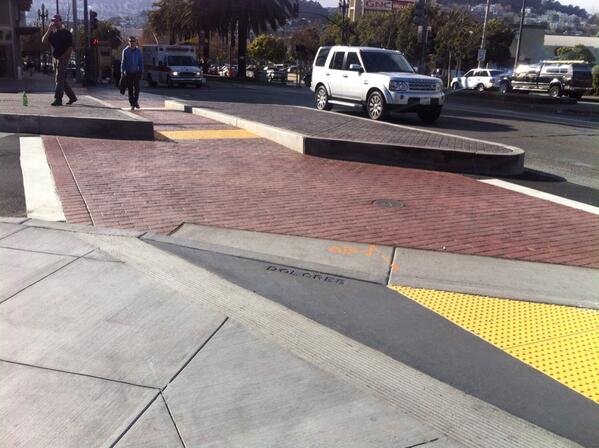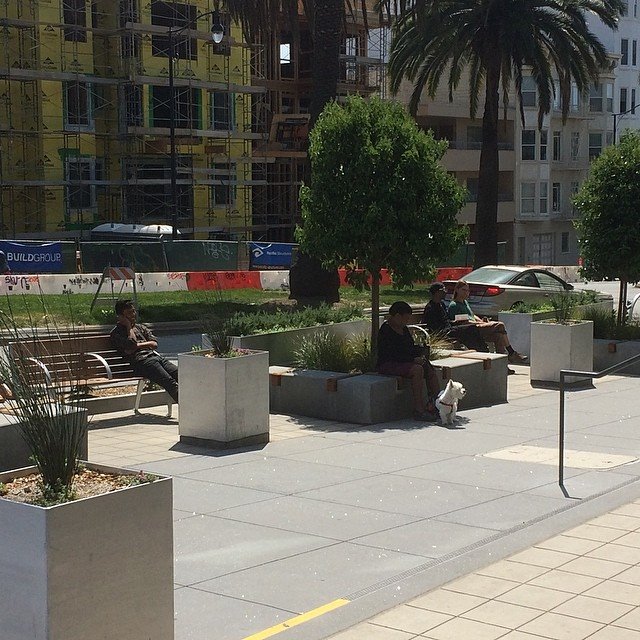It's happened again: street space was re-allocated from cars to people, and the unbearable traffic jams opponents warned of have failed to materialize. In fact, some of them even like the result now.
At the southwest corner of Market and Dolores Streets, the sidewalk was extended to create a mini plaza last fall, as part of a city agreement with the developers of a building housing condos and a Whole Foods Market there. The sidewalk extension was opposed by a loud few, who claimed that removing part of a traffic lane and car parking lane would result in disastrous queues of cars.
Supervisor Scott Wiener posted the above photo of the plaza on Facebook, noting that it "has been a huge success":
We had to push hard to prevent the plaza from being significantly reduced in size due to unfounded concerns about traffic congestion. Fortunately we were able to keep the plaza design intact, and it's worked out beautifully. Very positive addition to our public realm in this growing part of the neighborhood.
Over and over again, we see that the sky doesn't fall when well-executed projects reclaim space for people. Some folks just won't believe it until the changes are on the ground, but in the meantime we all reap the benefits of safer and more livable streets.
Hayes Valley livable streets advocate Jason Henderson said that even some of the most ardent opponents of the Market and Dolores plaza are now fans of it, as noted in my article last week about why city officials won't win by pandering to the vocal cars-first contingent.

Market and Dolores also saw other pedestrian safety improvements as part of this project, including a brick crosswalk, another bulb-out opposite the mini-plaza, and a raised crosswalk at a nearby alleyway entrance. The center median on Dolores was also extended through the crosswalk, apparently to slow left-turning drivers; one Twitter user complained that it was "pedestrian unfriendly," perhaps because high curbs and narrow passageway make the median thumbnail difficult to traverse.
We should note that Wiener wasn't a full-fledged proponent of the sidewalk expansion on this project. He actually opposed the Planning Department's original proposal for block-long sidewalk widening for fear of traffic congestion, a move which led to the scaled-back plan. Wiener did also, however, push through a package of legislation that helps streamline future pedestrian safety upgrades made as part of development agreements.





